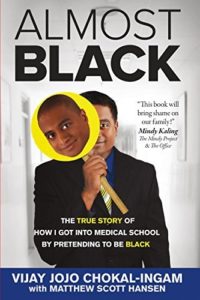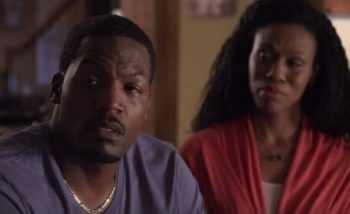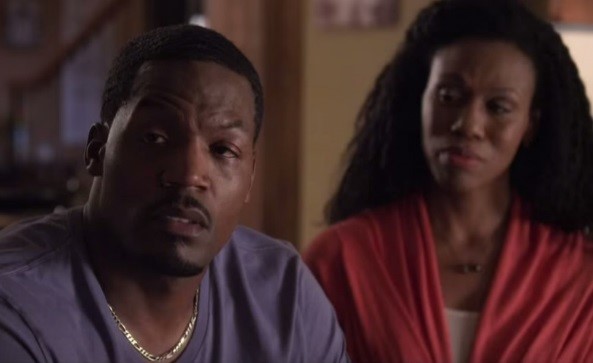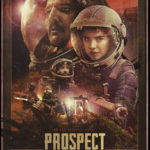Parker J. Cole On Diversity in Christian Fiction
 When it comes to the topic of diversity, I love referring to Vijay Jojo Chokal-Ingam’s book, “Almost Black: The True Story of How I Got Into Medical School By Pretending to Be Black.” His story is an eye-opener into the complexities of race in the U.S. and in the Western world. It’s a humorous book, considering the source, but it’s quite serious as well.
When it comes to the topic of diversity, I love referring to Vijay Jojo Chokal-Ingam’s book, “Almost Black: The True Story of How I Got Into Medical School By Pretending to Be Black.” His story is an eye-opener into the complexities of race in the U.S. and in the Western world. It’s a humorous book, considering the source, but it’s quite serious as well.
“I got into medical school by saying I was black. I lied. Honestly, I am about as black as Gandhi.”
One of the things he details is that policies like affirmative action created this opportunity. As his website says, “I shaved my head, trimmed my long Indian eyelashes, and applied as an African American. Not even my own frat brothers recognized me. I joined the Organization of Black Students and used my middle name, Jojo.”
He knew his grades weren’t good enough to get him into medical school but he understood there was a way to get in…by fraudulently saying he was of a different ethnic group. Eventually, while portraying himself to be black, he got into medical school, because he claimed he was black.
Not because of his grades.
Not because of his experience.
Because of his hijacked ethnicity.
Look, if you’re going to be a doctor, I don’t care if you’re covered in green and pink polka-dots – you better be qualified for what you’re doing. Do I really want the student who got into medical school to be my doctor solely because there are marginalized groups of green and pink polka-dotted people? Or, do I want someone who actually knows what they’re doing.
 Let’s face it: I’d rather the person who’s going to operate on my heart to, at minimum, know where my heart is located.
Let’s face it: I’d rather the person who’s going to operate on my heart to, at minimum, know where my heart is located.
In a recent interview on CNBC, Vijay made the comment, (and I paraphrased) “You should get into school based on your grades, your experience, etc. Not on your race.”
Interestingly enough, the interviewer said, “Well, I think we need more diverse ethnicities in the schools like Harvard, Yale, what have you, because I want to see my children grow with different races.”
So, are we looking for qualified people to service our society or are we looking make a colorful mosaic? Which is important?
Let use another example: the movie War Room resonated with a lot of people, Christian and non-Christians alike. People raved about the film. When I went to go see it, it was just something for me and hubs to do. It was either go see War Room or watch another episode of Star Trek: The Next Generation.
By the time I left the theater, I wished I had stayed home and watched that episode about Data’s Daughter.
 See, I’m allergic to bad acting. My eyes roll into the back of my head. I sigh. My legs shift from side to side. And most times, when I am exposed to bad acting, my brain automatically goes to find the schematics of H. G. Wells’ time machine so I can get back the ninety minutes of my life I just wasted.
See, I’m allergic to bad acting. My eyes roll into the back of my head. I sigh. My legs shift from side to side. And most times, when I am exposed to bad acting, my brain automatically goes to find the schematics of H. G. Wells’ time machine so I can get back the ninety minutes of my life I just wasted.
It wasn’t until someone said, “Well, War Room featured a black family as the main characters,” that I said, “Oh. That’s right.” I honestly hadn’t picked up that aspect because of my allergic reaction to bad acting. “They were all black. But what does that have to do with the bad acting I was forced to endure?”
The only thing that kept me in my chair was the message of the movie, about prayer and its power. And even that got a bit muddied because of the acting. I mean, there were times I sat there praying, “Dear Lord, please let somebody in this movie show some acting skill.” He answered my prayer with the grandmother but that’s to be expected.
So, this thing about diversity in speculative fiction – are we simply throwing ethnic groups in there just to do it?
Reading through the posts about diversity and speculative fiction, I want to thank Mike Duran, Travis, and Dan for sharing their input on the topic. I’ve met Mike personally, and have sat in front of him, thinking about how my hubs would kill to have all his thick, luscious, black and silver locks of curly, vivacious hair. Travis, I’ve badgered and stalked over the years because the poor man doesn’t know how to get rid of me. Dan I’ve never met before but from his post, I saw a certain sensitivity to the subject that I connected with.
Mike Duran’s article on Speculative Faith pointed out something that others commented on: when you force diversity, you’re stunting the creative spark. In fact, what begins to happen is that this thing called writing becomes REGULATED by someone else who determines what you, the creator of your own artistic work, should write. This particularly struck me as a very important aspect to this discussion. Are we promoting diversity because we truly need it? Are we promoting it for a political agenda?
Some readers may stop here and say, “But Parker, you’re black! You should be on our side!”
Well, here’s the thing: according to some black people, I haven’t been black in years. Heck, according to this rather humorous (raunchy, Rated R for language & whatnot) clip, putting hot sauce on your food is the deciding factor of being the blackest.
I actually prefer siracha but that’s neither here nor there.
Mind you, this doesn’t mean I haven’t experienced some prejudice, or backlash. But I’m one of those people who have, over time, come to really embrace people as individuals. Yes, there are cultural aspects of different groups that have been marginalized in the past that I feel should be explored in fiction. Yes, it’s great to want to highlight them but to demand them at the exclusion of all else? That’s a problem for me.
Travis’s article (and for those who know me, I’m one of his biggest fans!) pointed out that if everyone is simply writing the same thing like everyone else, just in different ethnic groups, then it’s not really diverse, is it? He makes an excellent point about this. If art and creativity are used, not for expression, but for an agenda, then how is that ‘diverse’?
What if it gets worse: what if a major publisher wouldn’t publish your book because it didn’t meet the diversity checklist?
Publisher: “Parker, I don’t see any representation of green and pink polka-dotted people in your story.”
Me: “It takes place in Korea during the Joseon dynasty. They didn’t meet any green and pink polka-dotted people back then. Green and pink polka-dotted people didn’t become noticeable until after the Fruit Loop virus spread, altering the melanin DNA of humans, causing the—”
Publisher: “Unacceptable.”
Me: “But…I don’t WANT to write about green and pink polka-dotted people. I want to write what I want to write. Do I have to have green and pink polka-dotted people in my story?”
Publisher: “If you don’t, then you’re a polkacist.”
Me: (shivering as the politically correct knife hovers over me) “I’m not a polkacist, I swear. I have two green and pink polka-dotted friends.”
Publisher: “This isn’t about you or your story or your talent. It’s about those green and pink polka-dotted people who don’t have enough fiction written about them.”
Look, I’m all for including diverse ethnic groups in fiction in general, not just speculative fiction. My major works are romance but in my contemporary romances, I write multicultural because that’s what I LIKE to do. I also received backlash and criticism from CHRISTIAN publishers who wouldn’t even touch my interracial love stories because they were interracial. Heck, they wouldn’t even consider it.
However, I know of some authors who don’t want to write multi-cultural and guess what? THEY DON’T HAVE TO.
Diversity should be a choice of the artist. It should not be included just so someone could pat themselves on the back and say, “See? I added green and pink polka-dotted people in my story. I’m better than Parker.”
That’s all well and good, until you hear the publisher say, “I’m sorry but we don’t see representation of the striped and glittery people. Where’s their story?”
I’m glad folks are talking about breaking color barriers. I’m happy that we’re getting more dialogue about it. Lord knows it’s about time. I have to agree with Dan Whyte on that – diversity is a wonderful look into eternity.
However, I’m not oblivious to the long road ahead. I mean, after all, we writers of today are the descendants of history. To make my point, let’s look back at history. There was a time when African tribes sold other defeated tribes into slavery to the Dutch. There was a time when Native Americans owned slaves. There was a time when Japanese doctors during World War II killed thousands of Chinese people and tried to cover it up. There was a time when Irish people were killed for being white slaves. There was a time when Jews were burned in ovens.
If I were to go back in time, I wonder what other sort of racial and ethnic crimes would I find that another ethnic group has done to each other? My point being that no ONE ethnic group holds the banner of hate. We all have carried that thing.
This is the backdrop of our writing. The fact that people are sinners and ALL have come short of the glory of God. EVERYBODY. It’s the one thing we have in common and that we all need a Savior to rescue us from damnation.
That’s a bit more important than what you look like.










































Thank you, Parker, for being willing to write this when I asked you if you’d like to use my Thursday slot. I just want to comment that I definitely don’t feel badgered or stalked by you! Though I honestly don’t quite understand it (I don’t see myself as great), I very much appreciate how supportive you’ve been of my writing. 🙂
I wish I could record a video of me doing a cheer for you saying, “Gimme a T-R-A-V-I-S! What’s that spell? Wonderful!”
But if I did that, I probably wouldn’t get past the T before I jumped up, broke my ankle and fall on the floor. 🙂
Go Travis!
That was great, Parker. You should be a writer! (And the Data’s Daughter episode, to boot. Wow, you must’ve really not liked that movie. 🙂 )
Ah Kerry! You killing me! Are you going to come back on my show sometime? 🙂
“You’re a polkacist!” I died. 😀
But in all seriousness, excellent way to make your point. And I very much appreciated hearing your perspective.
“This is the backdrop of our writing. The fact that people are sinners and ALL have come short of the glory of God. EVERYBODY. It’s the one thing we have in common and that we all need a Savior to rescue us from damnation.” <3
Thanks so much for responding. I admit I was on Mountain Dew when I wrote a lot of this…
I don’t often comment, but I am a regular reader and frequently repost. Gotta say this is one of the best articles I’ve seen on Specfaith (and that’s satlying something because I think you folks do a great job). Ticking off boxes for ethnicity, gender, and sexuality seems to be a hot topic these days and you can joke about it, but there really are editors out there that reject stories because there isn’t enough . I suppose it can be a marketing decision. Give readers what they want. Or, it maybe it is “give readers what we think they should want…”. Even when you do, there’s the camp that says you can’t do It authentically if you are not a member of said group you are representing. Wait. What? That’s what writers do all the time, using their skills to portray people, times and events sometimes wildly different from themselves. For me it wasn’t the question of ethnicity, it was gender. One editor actually told me it was “disturbing” to her that neither of the main characters in my debut novel were female. Disturbing? Uhm, okay… but the story is about a couple of blokes. Making one of them female just to tick off the Strong Female Protagonist box would have changed the dynamics of the relationships. It wasn’t the story I was telling. Is that still a thing? Telling a great story first? I’m all for diversity when it enriches the stories I want to tell, but I’ll stick to the organic process of discovering who they are and what they look like rather than starting with a checklist. Thank you, Parker!
Thanks so much for responding. I think you hit it on the nail. As a female, not wanting to write about a female is your choice. The story was about men. Maybe the next story, I’m sure you have more ideas, will have a female. And if it doesn’t, that’s your choice. The story builds itself at time.
A note about marketing using my own experience:
When I sent my book to my agent, she had me take out a few things to make it more marketable. One of the things she had me take out was a cult scene I had put in my manuscript. I had created this cult in my romance called, ‘The Church of the True Virgin of the Washed Saints’ and my hero parents were the leaders of the cult.
Anywho, I had a scene where the adherents of the cult would go and stand under the naked statue of my Virgin and they would pour warm water from above her chest and onto them to simulate the cleansing power of the milk of the Virgin. (I love my cult!) She requested I take that scene out. I enjoyed writing it because…worldbuilding, duh! But it turned out to be a good decision because the cult was already weird without it.
That’s make a decision based on what’s marketable and what readers may or may not want to read. But to say, You need to make xyz character this (diverse check box here) because that’s what you need to do…no.
I probably said too much responding to that and I tend to ramble so I hope that makes sense.
Boy, note to self. Don’t use phone for leaving comments! Too hard to edit!
Don’t you just love technology. It’s like that horrible autocorrect!
Good, I was half-expecting the next racial post to be something like “BBQ Becky did nothing wrong,” in the style of “leave Britney alone.” Or “BBQ Becky means that Both Sides Do It,” as if that helps to solve anything.
EXCEPT, per the surgeon bit, I would say that grades are reflective of privilege in that the students who get more support tend to get better grades, which puts out a lot of PoC’s who may not even get enough breakfast before school (blah blah white kids too, but can we take a moment to not re-center this around white people? k thx). Yeah, Affirmative Action is not a perfect system, but it’s one that mostly accomplishes the goal of getting PoC butts a seat at the metaphorical table. Is that an ideal goal? *shruggie emoticon* It’s prolly still better than doing nothing and seeing mostly white, middle-class butts with their privilege blinkers at the table.
And I concur that War Room sucked.
One thing I noticed with grades is that parental influence (or at least some sort of positive influence) helps a lot. I’d like to see more people entering more difficult schools/neighborhoods/etc to encourage and mentor children more.
Yeah, Autumn, I’d say you’re on to a piece of reality. Familial advantages, according to stats I’ve seen (and real families I’ve observed), are the most important factors in student success. It also happens to be true that people from difficult neighborhoods are more likely to have little family support. And since difficult neighborhoods often belong to particular ethnic groups (for reasons that I would say DO relate to historic but not really current racism), that’s the primary reason we see a difference in school performance according to race. Because of families whose ancestors were put in a rough place in part due to racism, not today’s racism.
If there’s been a study showing that black students from stable middle class families get lower grades than white kids from stable middle class families in the same IQ range, I haven’t heard of it. I don’t think such a study exists, but if it did, it would be a probable indicator of racism alone affecting grades.
Perhaps if Notleia knows of such a study she can share it. I’d certainly like to know if data supports her assertion about grades relating to race.
Yeah, my mom used to work in the public schools a bit while she was getting her teaching degree, and parental, teacher, etc. influence played a huge part in the children’s lives regardless of race and financial situation. And I know one reason I did well academically was because my parents pushed me to do my best and showed me how important it was.
Of course, some students will refuse to do well regardless of what their parents and teachers say. My mom even had a (Latino)family member that pretty much would have had everything going for him academically, but then he started making poor life choices. So, yes, racism can impact someone, but people need to stop treating it like it’s the only/determining factor, because it isn’t.
If you really want to read up on stuff, there’s plenty out there. I’ve only read the Kindle sample, but Ijeoma Oluo’s “So You Want To Talk About Race” seems promising.
If you want a bite-sized article, here is an article relating to the over-policing of black kids and the roots of the school-to-prison pipeline: https://www.vox.com/identities/2018/4/5/17199810/school-discipline-race-racism-gao
The article you shared from the GAO had some interesting data, with some of the complexities that real data gives–Hispanic kids were, for example, mostly listed as “underrepresented” as were Asian students, though not as much as white kids, to a degree that varied from school type to school type. And those bits of data that tracked boys often showed a greater disparity between boys and girls than blacks and whites…which I presume exists for reasons other than a bias against boys.
Still, interesting data that it contained, why did the study correct for the poverty of the school and not for the poverty of the student or student families? Or correct for different parental situations (such as single parent versus two parents)? I think if it had done so, its data would have proven to be more complex (and more meaningful).
I think that poverty of the school correlates pretty well for poverty of the families within the district, because the system as it stands (IIRC, etc) is that school funding comes from local property taxes. Ergo, expensive district = wealthy families living there. (There’s a lot of good reasons why that should be changed.)
But I think the number-crunchers were working off info they could get solely from school records. Getting specific family info like income or family structure would have required a lot more work to gather individual reports.
Yeah, I agree the number crunchers probably were going for the easier data–but if, say, white kids in most schools were wealthier than black kids in the same schools, you’d have to do a little more work than looking at the wealth of the schools to be sure that social class isn’t a significant factor in the calculation.
Thanks so much for responding! I agree. Parents need to help the kiddies understand the assignments. It’s one of the reasons why homeschooling is growing by leaps and bounds!
Yep 🙂 I homeschooled from seventh grade onward and it was awesome!
BBQ Becky? I had no idea what you were talking about. So I consulted google. Oh yeah, that lady who was on the news for a while. She’s a meme now? I had no idea.
Ok, now I realize who she is, why would anybody post about her? Of course you must be joking, but there’s no way we were going that direction. Though I’m pretty sure I still don’t get your joke–it makes no sense to me.
That’s what I get I guess for mostly ignoring American media, reading history books and physics, and having half of my conversations in Spanish. I at times have no idea what the memes are supposed to mean!
Are you and I from the same planet? 🙂
Travis, I thought BBQ Becky was a title for a cozy mystery! hahahah!
Meme culture is 90% cultivated absurdity.
Lol, I like that description of it. Stealing it.
Thanks so much for responding. Anything people do is imperfect. Affirmative Action being one of those things. No system is perfect. I just used the example to make a point. Wonderful observation.
Parker, I know that’s not the point of your stories, but I’m still grateful that you have interracial romances. As the mother of a black man who married a white woman, I fret about people hassling him and his wife in public places. I about had a heart attack the first time I heard they were going to be stationed in Florida. I quite forgot the military base effect on local communities. (If you don’t know, military bases are filled with multi-racial couples) David has trained in hand-to-hand combat in Israel, teaches GI’s how to shoot, teaches pilots how to survive behind enemy lines, and chases down feral pigs with a knife. He can take care of himself, but you know mama doesn’t want him or his wife or my beautiful grandchildren to be hassled. I fret about him being treated differently and more dangerously by police than my white sons. So yeah, I want people to read about interracial couples until the situation is normal in their minds. Do I want to force people to write such stories? Do I want every novel to be a sermon about racial harmony? Absolutely not. Even when it’s on my side, I hate heavy propaganda. Unfortunately, I also hate romance novels, so I don’t read your work, but I am GRATEFUL you are writing such books for the people who do love them. I love that you have a radio show. I love the great work you are doing on so many fronts. I love that you are supporting Travis. Thank you.
Oh, and by the way, great article.
Hi Lelia,
Thanks so much for responding! I love what the Lord has given me to do which is to showcase Christian authors worldwide.
Your concern is valid. There will always be someone who chooses to live in ignorance. What can you do but pray for them?
Ironically, a little bit after the most recent article on this topic was posted, I remembered you and kinda wondered what your take on all this was, so I’m glad to have an answer to that question 🙂
Totally agree with you, and you explained everything very well. One thing this brought to mind is the fact that when a movie is done well and has a minority main char(or even important side chars), the audience often doesn’t mind and loves the movie, and thus having important minority chars gets normalized. But when these chars/the stories they’re in are done poorly, it leaves a bad taste in people’s mouths and leads people to wonder if the story was just affirmative action. Daddy Day Care and I Robot were a few movies where there was a black main char and did a good job with it from what I can tell. I also liked Guess Who and The Help. The main chars in those two aren’t black, but they seemed to do a pretty decent job talking about important issues.
If a minority or woman char is in a story, I want them to be well written, and when a minority/woman is in a particular job, I want them to be qualified(and preferably the most skilled out of the pool of candidates) because otherwise it makes that minority/women look bad. I’ve thought about this several times, and one example I’ve seen has been with things like American Ninja Warrior(I think that was the show). I haven’t seen much of it, but there weren’t many women running those obstacle courses, and one of the few women I saw on there ended up slipping and falling on one of the first obstacles, and it made me cringe because I thought of a sexist guy seeing that and being like ‘See, girls just can’t do this.’ Maybe she was qualified and just made a misstep that one time, but it does illustrate the issue pretty well.
Another thing with diversity is that not everyone is even qualified to make their stories that diverse. There’s even a tumblr blog I’m subscribed to called Writing With Color, and although I don’t quite agree with every approach they take(there’s lots of people writing on that blog with slightly varying opinions, which means I’m bound to disagree with someone at some point), one thing they do sometimes is advise certain people not to write about certain issues because they probably won’t be able to do so authentically or because it might leave a bad taste in certain reader’s mouths(white people writing about a black person experiencing police brutality has been one example, I think, though I don’t remember for sure.) In some ways, that’s one reason why I don’t directly write any of our real life races into my stories. A lot of it is just for world building reasons(none of my stories take place on earth so far), but more and more I’m realizing that approach is probably for the best, so even though some of my chars might look like they’re of a particular race, they actually aren’t. But I do write a lot of struggles in my stories, and to an extent one of them is about the dynamics between those in power and those who are not. The relationship between humans and my angel descendant chars is the most prominent example, and that can often represent any relationship between the oppressor and the oppressed. And it reflects what you said at the end of the article about the banner of hate, because both sides definitely have their flaws(as seen in the very long and complex histories between these two groups in my stories)
I think it’s cool that you write about interracial couples, and I might have to check your stories out sometime since I’ve been more willing to read romance lately(anime has changed my mind and made me like the romance genre more).
Thanks so much for responding! I concur with everything you said. Being in an interracial relationship myself, I look at hubs and just see him as a person, not a color. He’s the bane and bliss of my existence…like all spouses are. 🙂
“I also received backlash and criticism from CHRISTIAN publishers who wouldn’t even touch my interracial love stories because they were interracial. Heck, they wouldn’t even consider it.”
That’s absolutely beyond stupid. Hope that kind of crap goes away. Forever.
Thank you for your article, Parker! Also, I think I want to say thanks to Jo Michelle (for asking for a diverse voice) and Travis (for following through and asking Parker to post). Blessings, and merry early Christmas, everyone!
Merry Christmas! Hopefully it will!
Yeah, that’s the Bob Jones effect…which just keeps right on giving in some circles. Fortunately, their sphere of influence continues to erode, at least on this issue.
I wonder what they think of the Bible, which includes interracial romance?
OK, much of it would not be considered interracial by OUR standards, but Israelites marrying Moabites was a big deal at the time of Ruth & Boaz. Or, if you’re wanting something that WE would call interracial, Moses’ Cushite wife.
Yay!! Parker got in on it! I agree with everything you wrote, even about War Room (I was cringing really bad throughout the movie. There were a couple of cute moments, but not enough to warrant a second viewing . . . compared to your books ?). Appreciate you giving us your point of view!!
Thanks so much for responding, Amanda. Mind you, I LOVE the message of War Room. I TRULY did. It made me look at my own prayer life and everything else. But gosh. The acting! However, I understand a greater objective is in mind and clearly people overlooked it.
Great article, Parker. Very thoughtful. I like the way you analogized by using “green and pink polka dotted” to show the absurdity that drives intersectional diversity. It’s really a kind of racism itself. It’s odd to me that the “color blindness” that MLK promoted is now considered racist by the diversity crowd. I actually heard a pastor of a prominent NY church tell me that.
And your point is also well argued that as soon as we embrace one imposed minority into the story based purely upon diversity dogma, then the next one will complain that they are not represented. And the absurdity is that it never ends.
Great stuff. Thanks for your insights!
I forgot to add that it is a disgusting shame on Christian publishers that they avoid interracial romance. Disgusting shame.
I know all of that is slowly changing but a sad fact of the industry.
Hi Brian, thanks for responding. So glad you joined in the conversation!
Hello Parker. I know you very personally and have see you mature. Thanks for your courage in addressing this issue. Though as an older person of color, I may see some of the things you’ve addressed differently, as I’ve been discriminated against terribly and my own parents and grandparents even more, I have to say that it would be a better world we might live in if all would indeed judge accomplishments by content and not by connotation. Keep it up. I’m proud of you. Oh yes, I have to concur, that “all have sinned and come short of the glory of God.”
Mom
Thank you Mama!!!! I love you!
A momma’s love.